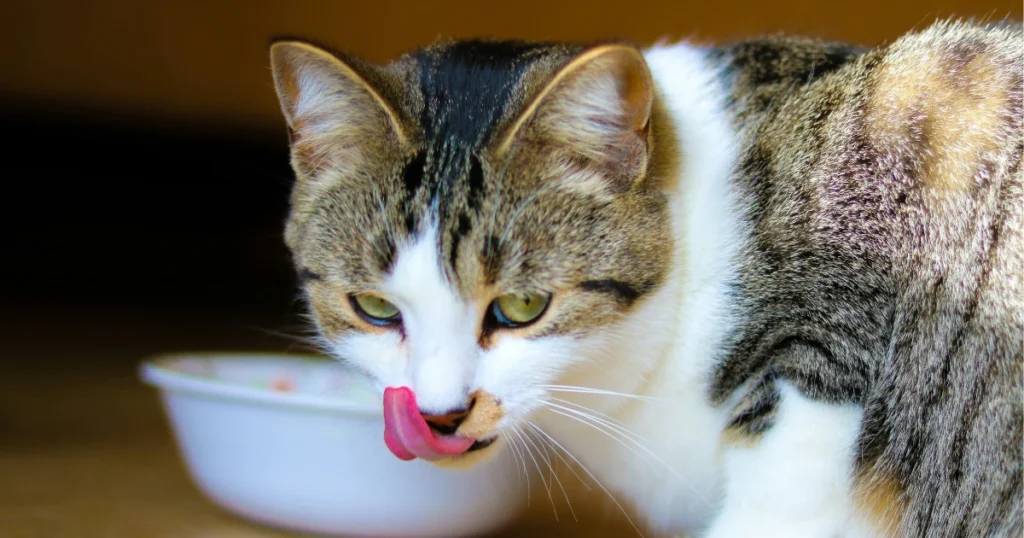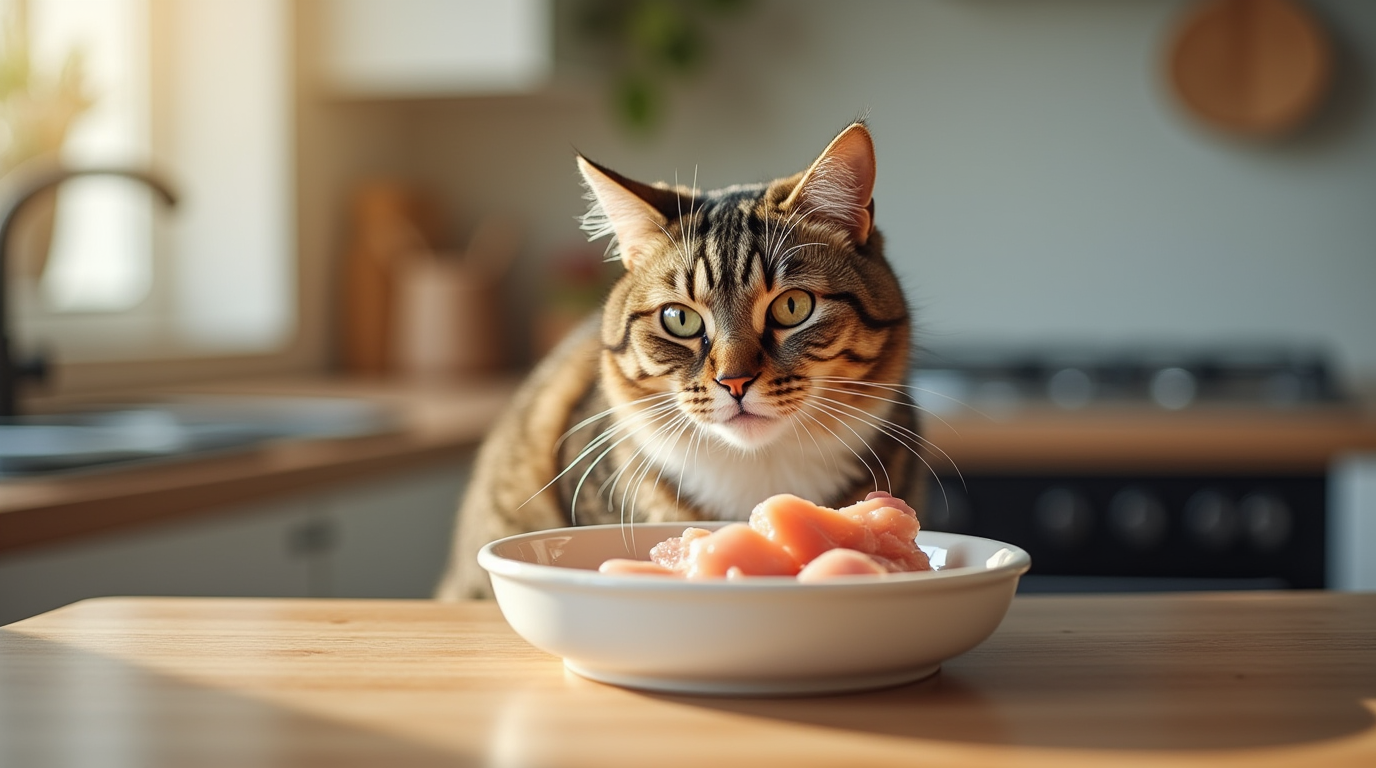Why Raw Cat Food Might Be the best Right Choice for Your Pet’s Health 2025
You care deeply about your cat’s well-being. You observe their playful moments, their purrs of contentment, and those occasional zoomies across the living room. But have you ever paused to wonder if the food you serve them truly supports their health? The world of pet nutrition can be overwhelming, but here’s something that might surprise you: switching to raw cat food could dramatically improve your cat’s quality of life. It’s not just a trend it’s a return to what your feline was biologically designed to eat.
Table of Contents
What is Raw Cat Food? A Natural Feline Diet Explained
Raw Cat Food Basics
Raw cat food is exactly what it sounds like: uncooked, natural food made specifically for your cat’s unique dietary needs. Typically, it includes:
- Fresh muscle meat (chicken, turkey, rabbit, beef)
- Organ meats (liver, kidney, heart)
- Raw bones (ground or whole, depending on size and safety)
- Eggs
- Small amounts of vegetables (optional)
This type of diet mirrors what your cat would eat in the wild, free from artificial additives, preservatives, or fillers.
Evolutionary Background of Cats’ Diets
Cats are obligate carnivores. That means their bodies are engineered to digest meat—not grains or carbohydrates. Your cat’s sharp teeth, short digestive tract, and high protein requirements are all signs that a meat-based diet is optimal. When you feed raw, you’re aligning with their evolutionary biology.
Raw vs. Commercial Cat Food Nutrient Comparison
| Nutrient | Raw Cat Food | Commercial Dry Food | Commercial Wet Food |
|---|---|---|---|
| Protein | High (natural source) | Moderate | High |
| Moisture | 65–75% | 10% | 75–80% |
| Additives | None (if homemade) | Preservatives, fillers | Fewer additives |
| Digestibility | Excellent | Moderate | High |
Health Benefits of Raw Cat Food

Why Raw Cat Food Might Improve Your Cat’s Overall Health
Switching your cat to raw food isn’t just about keeping up with a fad. Many pet owners report noticeable health improvements, including:
- Improved digestion: Raw diets are often easier to digest, reducing hairballs and litter box odor.
- Shinier coat and healthier skin: Natural oils and high-quality proteins promote skin health.
- Higher energy levels: Better nutrition means more energy for play and interaction.
- Better dental health: Chewing raw bones can naturally clean teeth and strengthen gums.
- Strengthened immune system: Fewer additives = less stress on your cat’s internal systems.
Veterinary nutritionists and holistic vets have noted that many cats on raw diets live longer, more vibrant lives.
Common Concerns and Myths About Raw Cat Food
Is Raw Cat Food Safe?
Safety is one of the biggest concerns for cat owners considering raw diets. But here’s the truth: when prepared and stored correctly, raw food is as safe as any other form of pet food. Key safety tips include:
- Always wash your hands and utensils
- Use stainless steel bowls (avoid plastic)
- Store food in sealed containers in the fridge or freezer
- Don’t leave raw food out for extended periods
Myth vs. Fact Table
| Myth | Fact |
| Raw food causes salmonella | Proper handling and freezing reduce this risk |
| Bones are dangerous | Raw bones (never cooked) are digestible and safe |
| It’s unbalanced and incomplete | With the right recipe or product, it can be |
How to Transition Your Cat to Food Diet
Step-by-Step Transition Plan
You shouldn’t make the switch overnight. Cats, especially picky eaters, need time to adjust. Here’s how:
- Start small: Mix 10–20% raw food with your cat’s current diet.
- Increase gradually: Over 7–10 days, slowly raise the raw food percentage.
- Observe changes: Watch for changes in appetite, stool, and behavior.
- Consult your vet: Particularly if your cat has underlying health conditions.
Tips for Picky Eaters
- Warm the raw food slightly to release aroma.
- Use bone broth as a topper.
- Try different protein sources until you find a favorite.
Preparing or Buying Cat Food: What You Need to Know
Homemade Raw Cat Food Recipes
Creating your own raw meals gives you full control over quality and ingredients. A basic raw recipe should include:
- 80% muscle meat (chicken thigh, turkey)
- 10% organ meat (liver and kidney)
- 10% raw bone (ground)
- Optional: egg yolks, omega-3 oils, taurine supplements
Note: Supplements like Vitamin E and taurine are crucial to avoid deficiencies.
Commercial Raw Brands to Consider
If you prefer convenience, commercial raw brands are a great option. Look for:
- Brands that follow AAFCO nutritional standards
- Transparent sourcing and ingredient lists
- Frozen or freeze-dried options
Top Raw Cat Food Brands Comparison
| Brand | Type | Protein Source | Price (avg/lb) | AAFCO Certified |
| Stella & Chewy’s | Freeze-dried | Chicken | $8.50 | Yes |
| Primal Pet Foods | Frozen | Turkey | $6.75 | Yes |
| Darwin’s Natural | Frozen | Beef | $7.20 | Yes |
When Raw Food May Not Be the Right Fit
Special Health Conditions or Dietary Needs
While raw food offers many benefits, it’s not for every cat. Consider alternatives or vet-approved variations if your cat:
- Has a compromised immune system
- Suffers from advanced kidney or liver disease
- Is extremely old or young (needs specialized guidance)
Always consult with a veterinary nutritionist before making dietary changes.
Conclusion – Is Raw Cat Food Right for Your Pet?
If you want your cat to thrive not just survive a raw diet could be a game-changer. It’s about going back to nature and embracing what your cat truly needs to live a long, happy, healthy life. From better digestion to a gleaming coat and more vitality, the benefits are clear. Every cat is different, so listen to yours, make the transition gradually, and consult your vet every step of the way.
Take Action:
Ready to give raw a try? Start small, do your research, and consider trying a sample pack from a trusted brand. Your cat will thank you with every purr and playful leap.
FAQ – Raw Cat Food Questions Answered
Is raw cat food safe for indoor cats?
Yes, indoor cats can benefit greatly from raw diets, especially since they don’t hunt or get natural proteins elsewhere.
Can I feed my kitten raw food?
Try warming it slightly, mixing it with bone broth, or experimenting with different proteins.
Absolutely, but it’s vital to ensure the diet is nutrient-complete for growth. Always involve your vet.
What if my cat refuses raw food?
How do I know if raw cat food is balanced?
Use recipes approved by pet nutritionists or choose AAFCO-certified brands.

